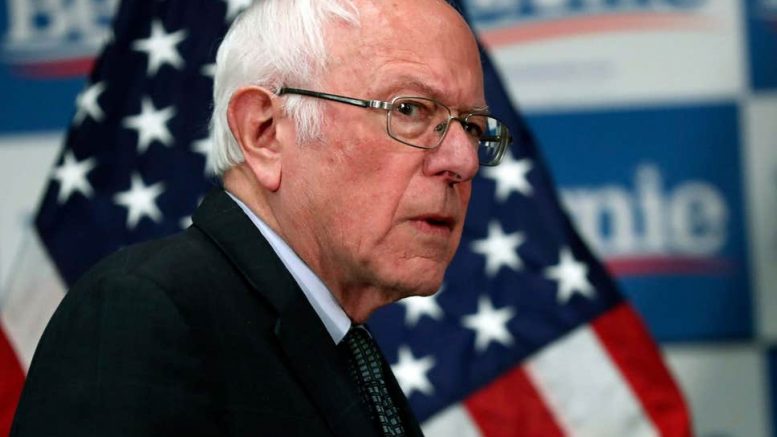Bernie Sanders has drafted a 6 point plan for dealing with the coronavirus pandemic and the looming economic crisis – and the strange thing is that he doesn’t mention the presidential election nor the name of America’s current president, Donald Trump.
While Joe Biden tries to make his voice heard from his basement studio in Delaware, Sanders remains an active member of the US Senate, fighting to get things done without waiting for the Democratic party primary season to end – and without waiting for Trump to be replaced in office either.
“Congress must pass, in the very near future, the boldest piece of legislation ever written in modern history,” he says.
“We must make sure that every worker in America continues to receive their paycheck during this crisis and we must provide immediate financial relief to everyone in this country,” he says. This means “monthly payments of $2,000 for every man, woman, and child” and guaranteed “paid family leave throughout this crisis.”
He adds that “this is not a radical idea. Other countries, such as the UK, Norway, Denmark, France, and others have all come up with similar approaches to sustain their economy.”
His second point is a demand for universal health care.
Even today, with Sanders’ Medicare for All proposal still far from becoming a reality, he’s demanding that “Medicare must be empowered to pay all of the deductibles, co-payments and out-of-pocket healthcare expenses for the uninsured and the underinsured. No one in America who is sick, regardless of immigration status, should be afraid to seek the medical treatment they need during this national pandemic.”
“I am not proposing that we pass Medicare for All in this moment,” he admits. “That fight continues into the future.”
Sanders’ third demand is that the federal government “must immediately and forcefully use the Defense Production Act to direct the production of all of the personal protective equipment, ventilators and other medical supplies needed.” He goes further than other politicians in saying that the government must “use any means necessary to secure supplies.”
His fourth demand is an increase in funding for food banks and school meals.
Fifth, Sanders calls for emergency aid right now to states and cities that are struggling to cope. He is calling on Congress to “provide $600 billion in direct fiscal aid.”
And sixth, he is calling for a suspension of “monthly expenses like rent, mortgages, medical debt and consumer debt collection for 4 months” as well as the cancellation of “all student loan payments for the duration of this crisis” and “an immediate moratorium on evictions, foreclosures, and utility shut-offs.”
This is not a radical programme, as Sanders is the first to admit. Parts of it have even been adopted by the Tory government here.
What is new and radical is that what he says will resonate among Americans, who are increasingly aware that their system and their leaders failed them. They will welcome much of what Sanders proposes.
This article appears in Solidarity.
